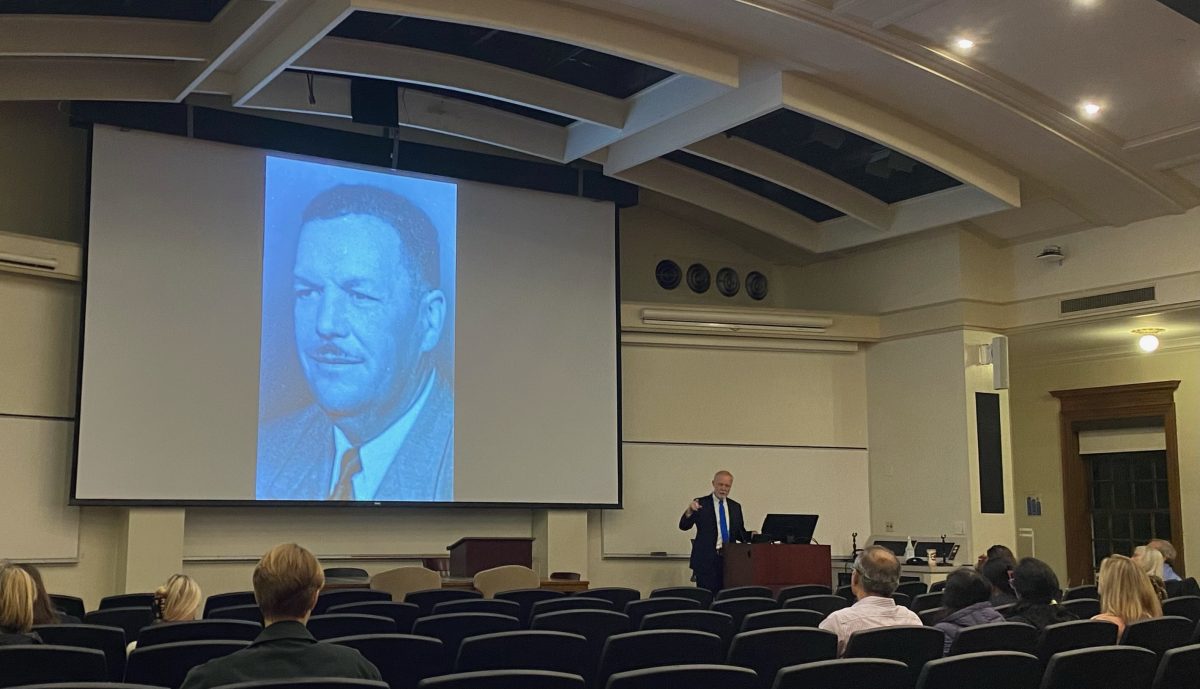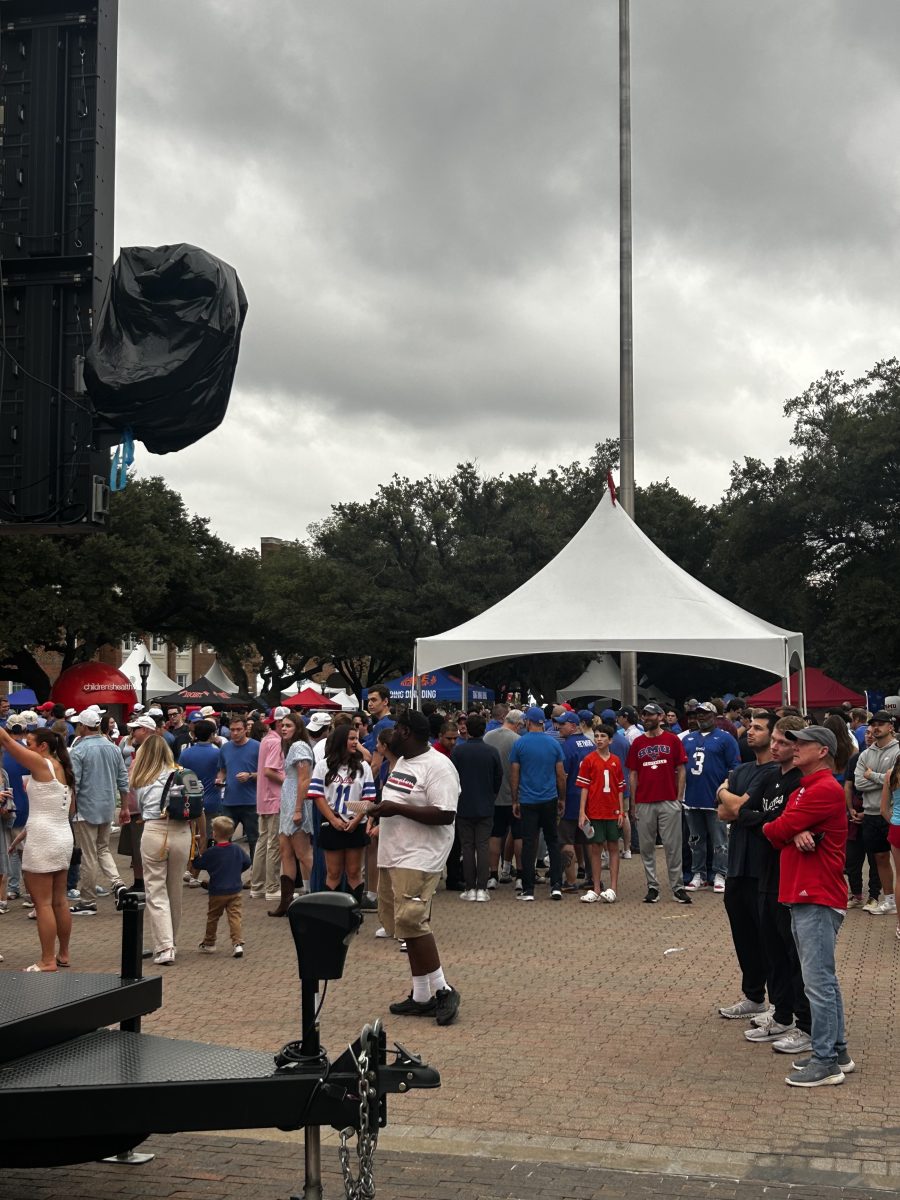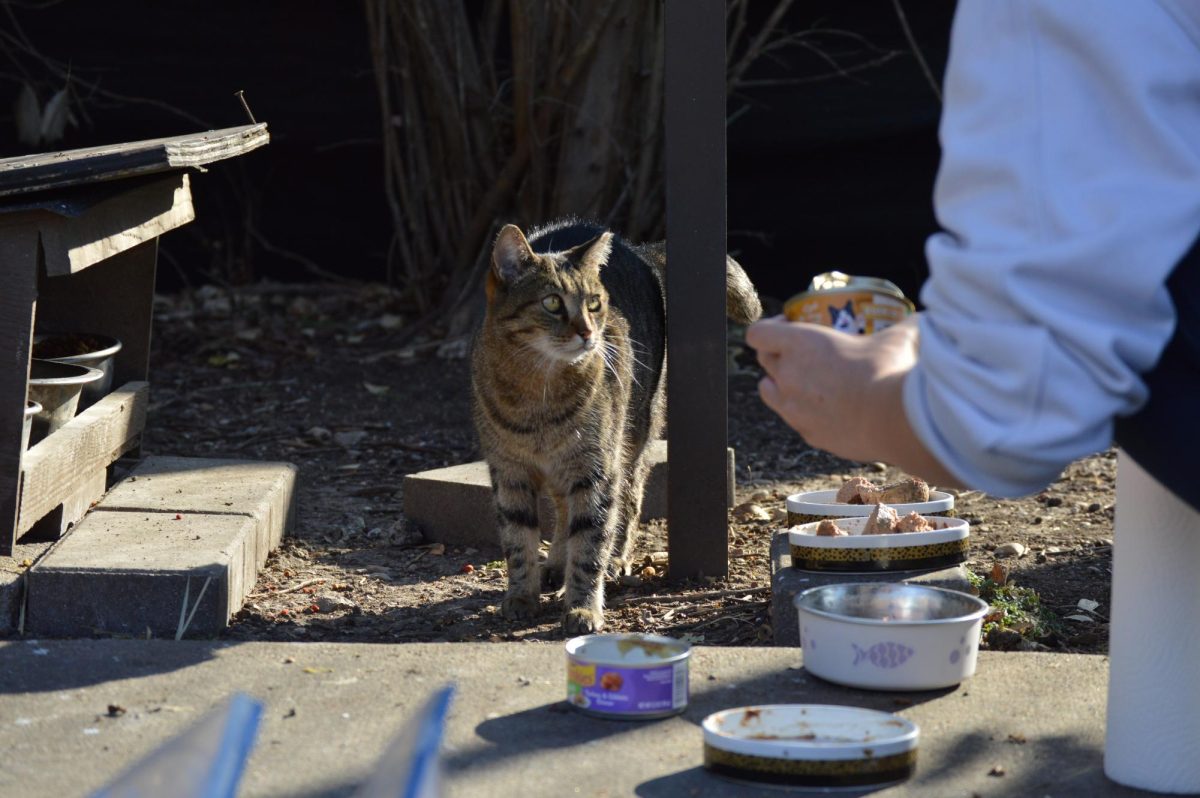Jerry Mitchell, founder of the Mississippi Center for Investigative Reporting and former investigative reporter for The Clarion-Ledger, spoke at the McCord Auditorium at SMU on Nov. 2 about the civil rights cases he re-opened through his reporting.
Mitchell’s reporting helped place Ku Klux Klan members behind bars for the deaths of American civil rights activists and martyrs, including the four young girls in the 16th Street Baptist Church bombing in 1963.
“I believe God’s hand is [involved in their] convictions because God loves justice,” he said.
He first discussed his role in helping convict Klan member Byron De La Beckwith with the murder of Medgar Evers, a War II veteran who served as the NAACP’s first field secretary for Mississippi.
While working on Evers’ case, Mitchell learned that the Mississippi State Sovereignty Commission had thousands of spy records, and the Mississippi Legislature voted to seal these records for over 50 years.
“When I found that out, my first thought was, there’s something in there, or else it would not be sealed for 50 years,” he said.
Mitchell got access to files that showed the State of Mississippi was prosecuting Beckwith for Evers’ murder. Mitchell said the files also showed that an arm of the State Sovereignty Commission, headed by the governor, was assisting with Beckwith’s defense to try to get him acquitted.
Mitchell said The Clarion-Ledger ran his story with this information on Oct. 1, 1989.
“When my story ran, the odds were literally more than a million to one against the case being reopened and re-prosecuted,” he said. “There was no evidence left, and there was no court transcript.”
Mitchell said that after his story was published, the police found more evidence to eventually indict and convict Beckwith.
“As the word ‘guilty’ rang out, you could hear the waves of joy as they cascaded down the hall to a foyer of people,” he said. “I still have chills because the impossible suddenly became possible.”
Mitchell began investigating the murder of Vernon Dahmer, an American civil rights activist and NAACP leader who advocated for voting rights.
Mitchell found out that Samuel Bowers, leader of the White Knights in the Klan, gave the orders to set Dahmer’s house on fire. Dahmer died from the smoke after defending his family.
Mitchell said Billy Roy Pitts, the key witness in the attack, led him to Bowers.
“I was researching how much time all these guys actually did in prison,” he said. “Billy Roy Pitts never served a single day of his life sentence, which is a big oversight.”
Mitchell contacted Pitts after finding his information online, and his investigation resulted in a warrant for Pitts’ arrest.
While on the run, Pitts sent an incriminating statement to Mitchell about the Klan’s involvement in Dahmer’s murder. Pitts turned himself in and testified against Bowers and two other Klan members. Sam Bowers was convicted on Aug. 21, 1998, and sentenced to life in prison.
Mitchell said people have questioned his decision to write stories that result in these men’s convictions.
“I tell them, look, these are young killers that just happened to get old,” he said.
Mitchell realized that Bobby Cherry, the suspect in the 16th Street Baptist Church bombing, was not prosecuted.
Shortly after Mitchell called Cherry, Cherry’s wife reached out on her husband’s behalf via email, and Mitchell met with the couple.
Mitchell said Cherry used the alibi that he was watching wrestling during the time of the bombing. Mitchell had librarian Susan Gray check the Birmingham News television schedule, and Gray informed Mitchell that the station did not televise wrestling on the night of the bombing.
Mitchell also discovered that Cherry beat Fred Shuttlesworth, an American civil rights activist, for trying to enroll his two daughters in an all-white school in Birmingham.
Mitchell received a book with images of someone beating Shuttlesworth, so he contacted the author of the book, who recommended a CBS documentary with more evidence. Mitchell reached out to Cherry’s son, who confirmed that his father was in the footage.
Mitchell said the footage and false alibi were used in court against Cherry, who was convicted and given four life sentences- one for each one of the girls whose lives were taken.
Mitchell said he later got access to Bowers’ interview given to the Mississippi Department of Archives, which helped convict another Klan member.
“[Bowers] never talked to the press, and the interview was sealed,” he said. “I was like, I want to get that interview, so I was able to get developed sources to get that interview.”
In the interview, Bowers mentioned Edgar Ray Killen, who planned the murder of three civil rights workers: James Chaney, Michael Schwerner, and Andrew Goodman.
Mitchell used the interview in his investigation and also met with Killen to get more answers. Mitchell’s findings were used in court, and Killen was convicted on June 21, 2005- the exact anniversary of the killings.
Tragic events still take place, Mitchell said.
“The hate that caused [these crimes] has not really gone away,” he said.
Mitchell continues to expose those abusing power through his nonprofit news organization, the Mississippi Center for Investigative Reporting.
“I’ve been threatened dozens of times, but I think anything we are doing in life we’re going to encounter threats,” he said. “It’s about living beyond fear and living for something greater than ourselves.”






















